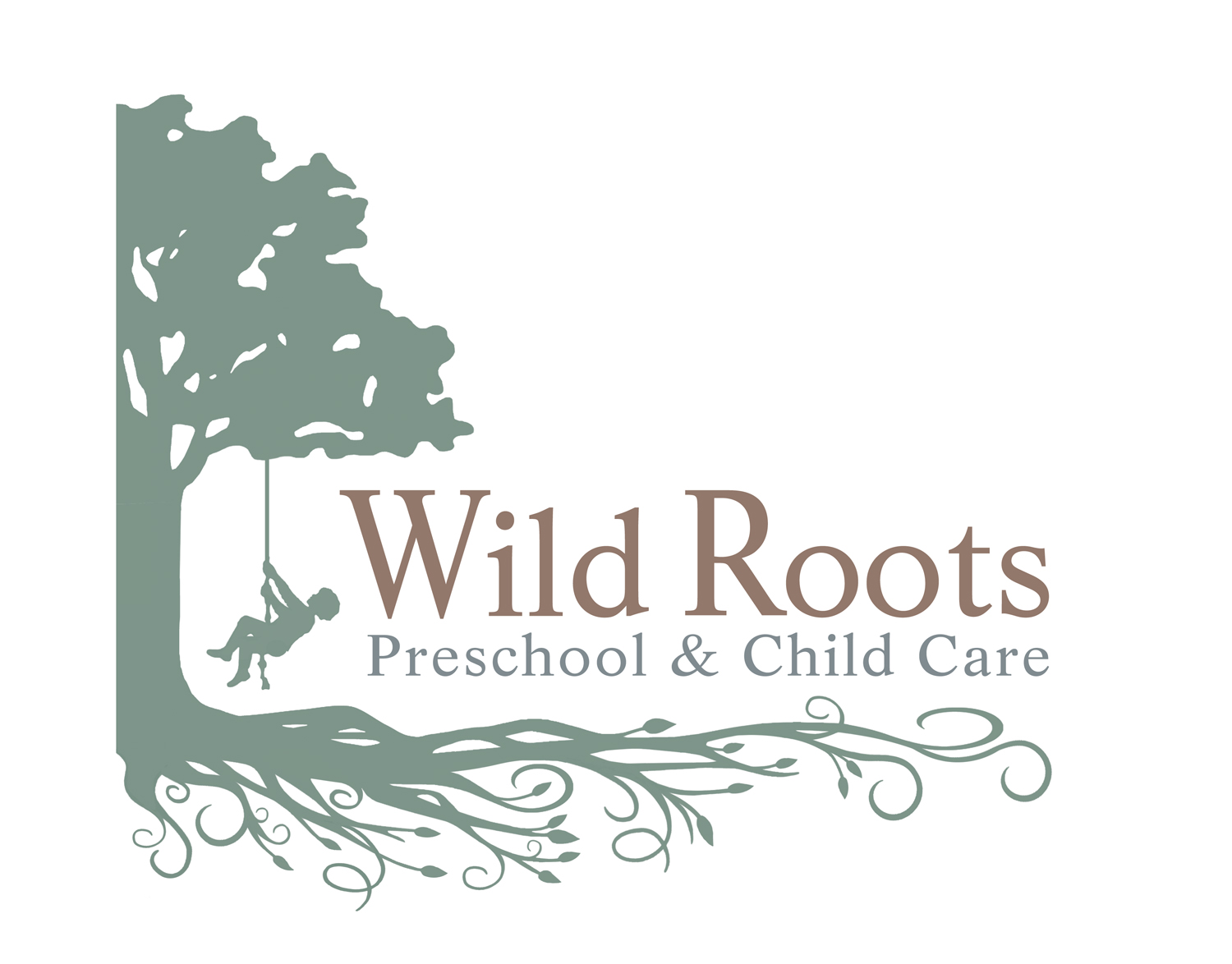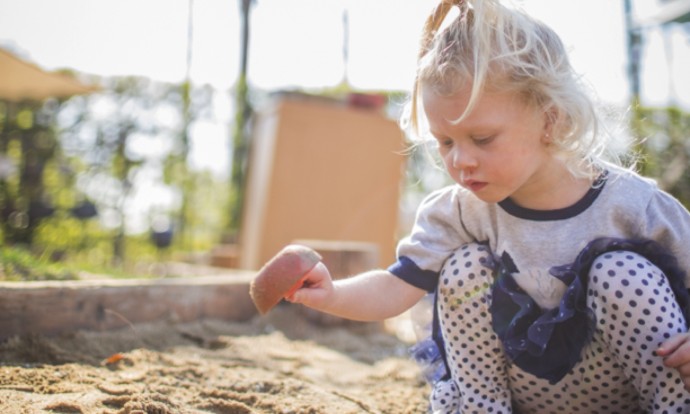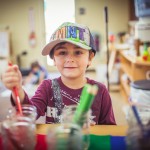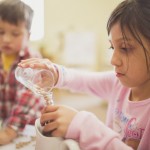-
“Look deep into nature, and then you will understand everything better”-
Here at Wild Roots, we seek to provide children endless acquaintance to the wonders of the natural world. Through opportunity for exploration and play in our bountiful backyards and gardens, the children are afforded hands-on immersion in the beauty and viability of nature. Through project work which allows the children ample access to natural and living materials, as well as the opportunity to cultivate partnerships with one another, the children here begin to hold a sense of awe and inspiration for their place in nature, community, and in the world.
In the summer of 2014, I had the privilege of attending a seminar hosted by San Diego Reggio Roundtable and Point Loma Nazarene University. The title of the event alone had me at hello. “A Sense of Wonder: Cultivating an Ecological Identity in Young Children- and In Ourselves”, featuring the inspirational speaker and educator Ann Pelo, was an experience I will never forget. Ann’s delicate words helped me to better appreciate the truths that my heart has always known.
I immediately felt that Wild Roots was deeply connected to the heart of Ann’s philosophies, and we believe that fostering like-mindedness and united hearts can ignite amazing things. For almost one year, I have wanted to pass on this information in all its harmony to our community here at Wild Roots, in order to further enrich our own practices and passion for holistic education. Rather than paraphrase and re-interpret though, I feel it will do more justice to provide for readers largely Ann’s own depiction of her principles. I wholeheartedly appreciate Ann Pelo’s perception of our human place within the natural world, and I hope this information touches those who take the time to read.
“Develop a Community of Practice- a gathering of like-minded companions. Linger in complexity; in tradition. Learn from each other what is necessary and provocative.”
Ann began her springtime workshop by ushering the audience to a place of temporary, quiet reflection. When we were still, she gracefully recalled the Maori people, indigenous to New Zealand. She described that the Maori introduce themselves to one another, and find their identity within the elements and provisions of the natural world. The natural world is sacred and honored; nature’s aspects ground the Maori people and provide a context in which their lives unfold. Ann prompted us to spend a moment in thought on the wonders of nature which have framed our own worlds. What is my mountain? My river? My beach? Where is my heart’s home, and who are my people? Our identities are shaped by, and anchored in our places. What does it mean to be from a river, an ocean, a farm? Where we live forever shapes who we are, and who we will become. Ann lovingly described her connection to the red rock desert, and I could feel her yearning for this place each time she recollected it in her stories. In my own contemplation, I traveled to the hidden waterfalls and splashing, bubbling streams that adorn Yosemite Valley’s lush floor. I couldn’t help but feel ownership of those places, and the experiences with my family that have taken place there which helped to define who I am, and what I love unconditionally.
We are synchronized with the earth and with each other. Our bodies are connected to the offerings of the natural world. We feel the sun on our skin, the breeze that rustles the treetops and our senses. We observe light and shadow, the texture of rock and shrub and succulent; the juicy bite of fresh-picked garden favorites; we know them intimately. As we grow older and become bombarded with modern demands, we tend to forget our innate need for connection to- and immersion in- nature.
“In the hustle and bustle of education today, we hastily teach children in a number of categories, complete with facts and figures and a host of information. “We teach them art: what can be, history: where they came from, science: the happenings of the world. Don’t leave these things to happenstance- teach and nurture them with care and intention of place.”
Ann emphasizes the impact of cultivating an ecological identity within children, so that children are afforded intimate knowing of their home, and are able to be invigorated and empowered by the earth they love.
“Cultivating human relationship with the elements of the earth, the dynamic interplay between the sun, moon, stars, oceans, forests… brings about a full body, intellectual, and visceral connection to place.”
Through connection, the child is capable of feeling and being and believing, wholly. He is instilled with a sense of wonder for the natural world. What is wonder? “The strengthening and being strengthened by kinship and familiarity with our home, or a natural place in this world. An aesthetic appreciation of patterns, textures, colors, lines, and forms of the natural world.” –David Orr, Ecological Literacy.
Habits of Mind, Habits of Heart
We don’t need to be occupied at every minute of every day. We must learn to be self-aware, slow down, and travel against our instincts. These habits will help turn us beyond the human world, and turn us toward the earth…
- Pay attention. Look closely, look often. Notice change and constancy. Know details, and stay a while.
- Be Curious. Look for connection, for novelty. Be present with questions. Invest.
- Open your Heart. Be astonished, be humbled. Grieve and marvel. Embrace the light.
- Be Modest. Humble, not superior. Not less natural. Know our place and proportions in our encounters.
“Nature is not a series of science lessons. It is a way of being and a way of moving ourselves through the world. Find the Natural wherever you are.”
Practices to Developing an Ecological Identity
- Walk the Land. There is deep value in returning to the same few places, many times. Look for what these places hold. The world narrows here, but then it bursts open. Look at the detail even in a remote spot. Embrace what you behold.
- Practice Silence. Why do we, as adults, always yearn to tell, teach, ask questions, instruct? Can’t we resist filling the space with our own voices? Be reverent. Look. Listen. Let the Children observe, in awe of their world.
- Learn the Names. Species, Plants, Animals. Show reverence and appreciate knowledge gained because we love these things and we want to know about them. Allow for exposure and a full knowing of nature. “Giving a name to something is a way of knowing it. We are unlikely to value what we cannot name.”- Elaine Brooks.
- Embrace Sensuality. Before words, memories, and stories, a small child has only experience. Full body, sensory, sensual, tactile experience. As adults, we are called to more than simply going through the motions and enacting for the children. Be in nature. Be with the children. Be aware of our own sensual experiences with the natural world. To fully participate in finding our place and our way through the world, become immersed in our senses. Taste, sight, touch, smell… feel what sensory experiences our hearts hold in each moment.
- Explore New Perspectives. See familiar as new. See new as connection to the familiar. Rustle things up and let them resettle. Look at something from below that is usually seen from above. Taste something that is usually smelled. New perspectives inspire new thought, feeling, and insight.
- Create Stories. A call to humanness, as listener and as teller. Stories help us to remember who we are, where we live, and who we are with. Stories are not just for the children.
- Create Ritual. Create meaning. Ritual does not necessarily mean “grand” or “lengthy”. A ritual as simple as ringing a chime, picking a blackberry, or collecting gum tree fruits in baskets remind us what our visions are, how we want to live, and give us hope for tomorrow.
I remember when our beloved Wild Roots was new. I remember that the children were attracted to the round, “pokey” balls that fell from our trees and graced the floors of our backyard each morning. We began to provide baskets and bowls and extended an open invitation. The children began to collect, study, ponder, and ask questions about these mysterious and delightful, seemingly irrelevant forms. They became moon rocks, buried treasure, dinosaur eggs, and poking devices, of course. One day, we learned together that these “spikey” entities were named “Gum Tree Fruit”, and since then, the children’s love for them has only grown. We utilize them to cook mud soup, to count, to stack. We look at them in the sunshine, through colored light, and under magnifying glasses. We glue them and they become wheels. We string them and they become adornment. We roll them and spin them, and they become spheres. The children have learned so much, and loved so much from something so simple- because their minds and hearts are always open to endless possibility…
“Accept the invitation of our glorious, miraculous earth. Like a naturalist and an artist, be servants of our eyes, our minds, our senses, and our hearts.”
Further Reading:
The Goodness of Rain, Ann Pelo
Ecological Literacy: Educating Our Children for a Sustainable World, David Orr
- Home
- About
- -- Programs
- ---- Sage Room 18mos-2yrs
- ---- Rosemary Room 2-3yrs
- ---- Willow Room 3-6yrs
- ---- Oak Room 3-6yrs
- ---- Atelier 3yrs+
- ---- Music 2yrs+
- ---- After School Care 5-12yrs
- -- Admissions
- -- Educators
- Events
- Resources
- -- Blog
- -- Reflections
- ---- Atelier
- ---- Oak Room
- ---- Rosemary Room
- ---- Sage Room
- ---- Willow Room
- Gallery
- Contact Us





Leave Your Reply